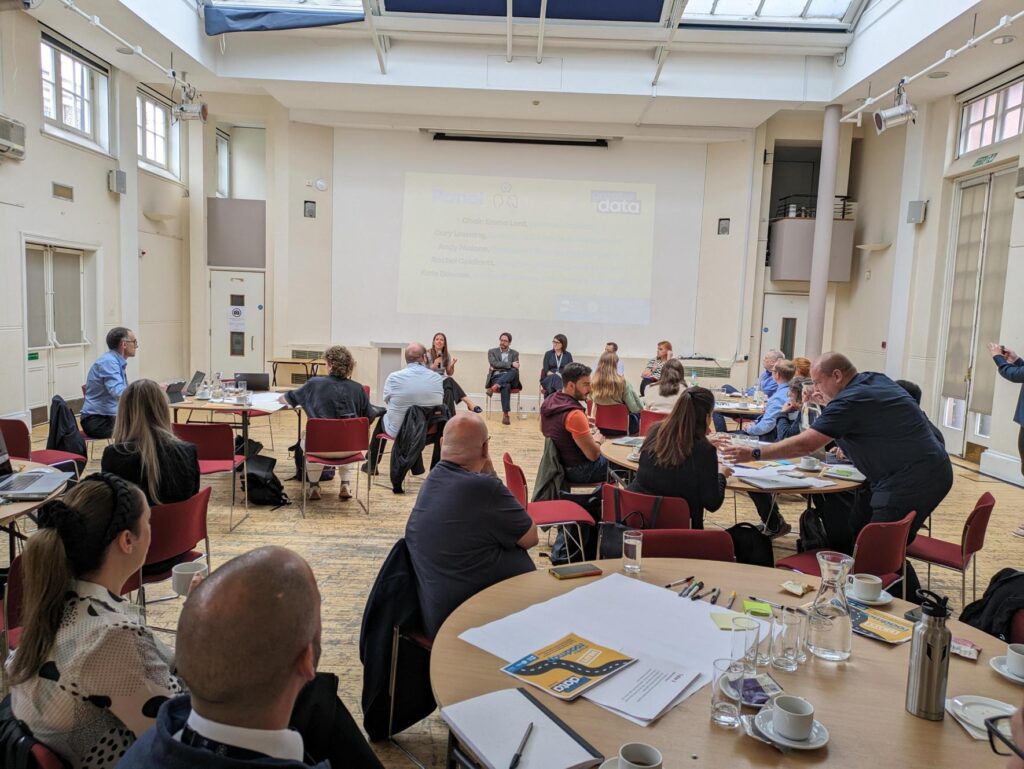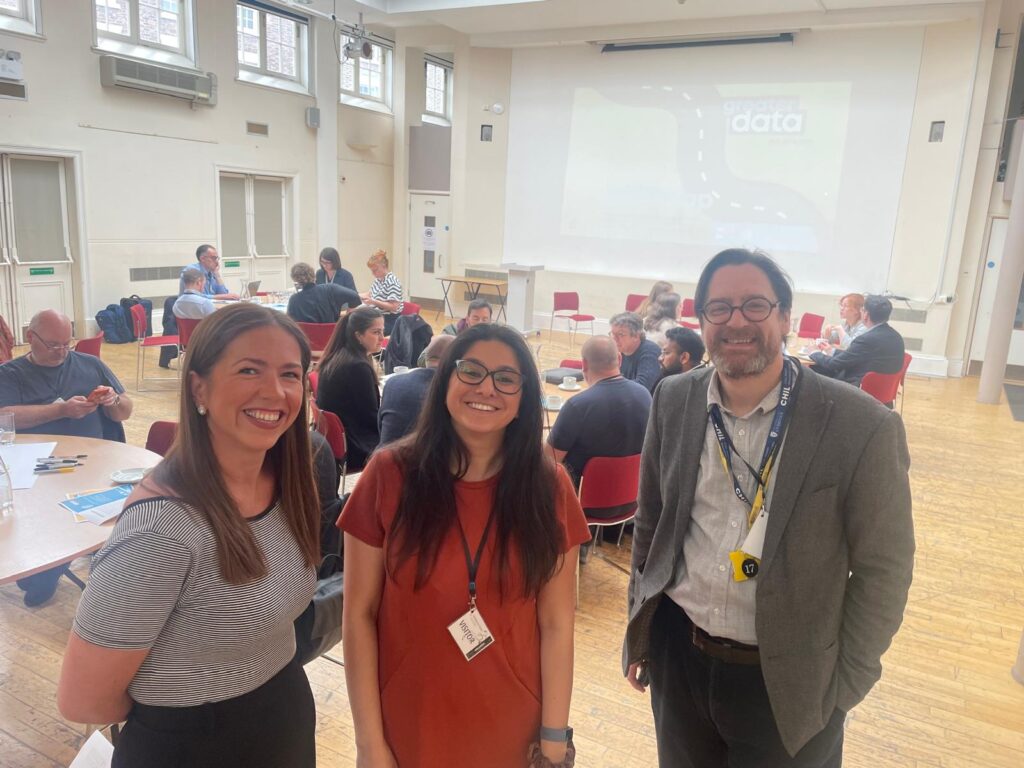Greater data: A new roadmap for civic data and public services in Liverpool City Region
- June 19, 2024
- Categories: Client News, Sector in focus, Stay in the Loop
What does it take to put civic data at the heart of modern public services and turn transformative ambitions into realistic plans? That’s the question 40 people working in civic data, public policy, public services, and health came together to discuss at this week’s ‘Greater Data’ workshop at Blackburne House in Liverpool.
Capacity Designer and Doer Sara Chattun reflects on the day.

Organised by the Civic Data Co-operative, Liverpool City Region Combined Authority and Capacity, the event was an opportunity to test a new roadmap for civic data’s impact on public services in Liverpool City Region and Cheshire.
In his introduction Gary Leeming, director of the Civic Data Co-operative, underscored the opportunities in developing a road map for civic data to improve the outcomes and experiences of people living in the region. It was the catalyst for a powerful and inspiring talk by Rachel Coldicutt, an expert on the ethical and social impact of technology and Executive Director at Careful Trouble, a research studio and a social enterprise – ‘helping make technologies work better for more people, more of the time’. It’s hard to fully capture the deep, rich insights and talking points in Rachel’s presentation. Her coral reef ecosystem was a vivid analogy referenced throughout the day – creating the conditions for systems to thrive or conversely blocking light and killing everything.
In a conversation moderated by Capacity’s director Emma Lord, a panel made up of Gary, Rachel, Kate Downes (assistant director, Liverpool City Region Combined Authority) and Andy Malone (operations director, Kaleidoscope) discussed real life examples of data improving public services. The panel brought both optimism and realism to the challenges and opportunities we’re facing in public services. Even with a wide range of perspectives and experiences, there was an emerging consensus on how to create real change at the intersection of civic data and public service innovation.

Sara (Centre) with Emma Lord (L) and Gary Leeming (R).
Some big themes emerged from the panel and the breakout sessions that followed:
Trust
Every group went all in on trust as a must have for effective, long-term, positive change. It has to be built and earned – in people, organisations and the system. It doesn’t matter how well meaning each project is, trust is crucial in making change happen.
Skills
Leadership and decision making provide the platform for managing risk and permissions for information governance (IG). This isn’t a given. A lack of skills and training across all levels of an organisation can be decisive and make or break projects. As a region, we need to upskill across the board so that there’s shared confidence in how decisions are made.
Storytelling
One talking point that came up throughout the day was the role of storytelling. Who’s at the centre of communicating why civic data is important? How do we use data to bring real people’s stories to life? Local journalism can play an important role in telling stories, sometimes based on complex data.
Making the case for change
People on the front line of services know where the problems are. They don’t need data to tell them. They need the data to secure investment and partnerships to build on what’s working. Successful projects turn experiences from front line services into data to effect change. The challenge is that intelligence from the ground doesn’t always get the kudos it deserves.
Tools
The tools we use have to work for everyone – ‘almost right’ isn’t good enough to deliver the best public services. Our ambition in the region is to be a frontrunner in modern public services and OPSI (Office for Public service Innovation) is the accelerant for change and puts data at the centre of driving innovation.
Locally grown solutions
A group of committed creative people ready to lead the change is emerging in Liverpool City Region. The Combined Authority has an essential role in convening and developing agreement on priorities and ambitions. Local people want to be involved and have the skills to play an important role. Let’s utilise their abilities to build better services and systems and be intuitive and entrepreneurial in approach.
Final thoughts
The event was a moment of real engagement. Everyone at the event brought thoughtful and challenging questions to create a shared purpose and understanding of data’s role in developing public services for the future.
We saw in real time a new road map and consensus beginning to emerge for a new civic data roadmap. It left the room feeling excited and impatient.
It’s clear the people in the room are looking beyond marginal improvements and want more substantial and sustainable innovation, tired of playing it safe and tinkering away at the edges.
Everyone I spoke to felt energised after the event and ready to be part of whatever comes next. Here are my top 5 takeaways.